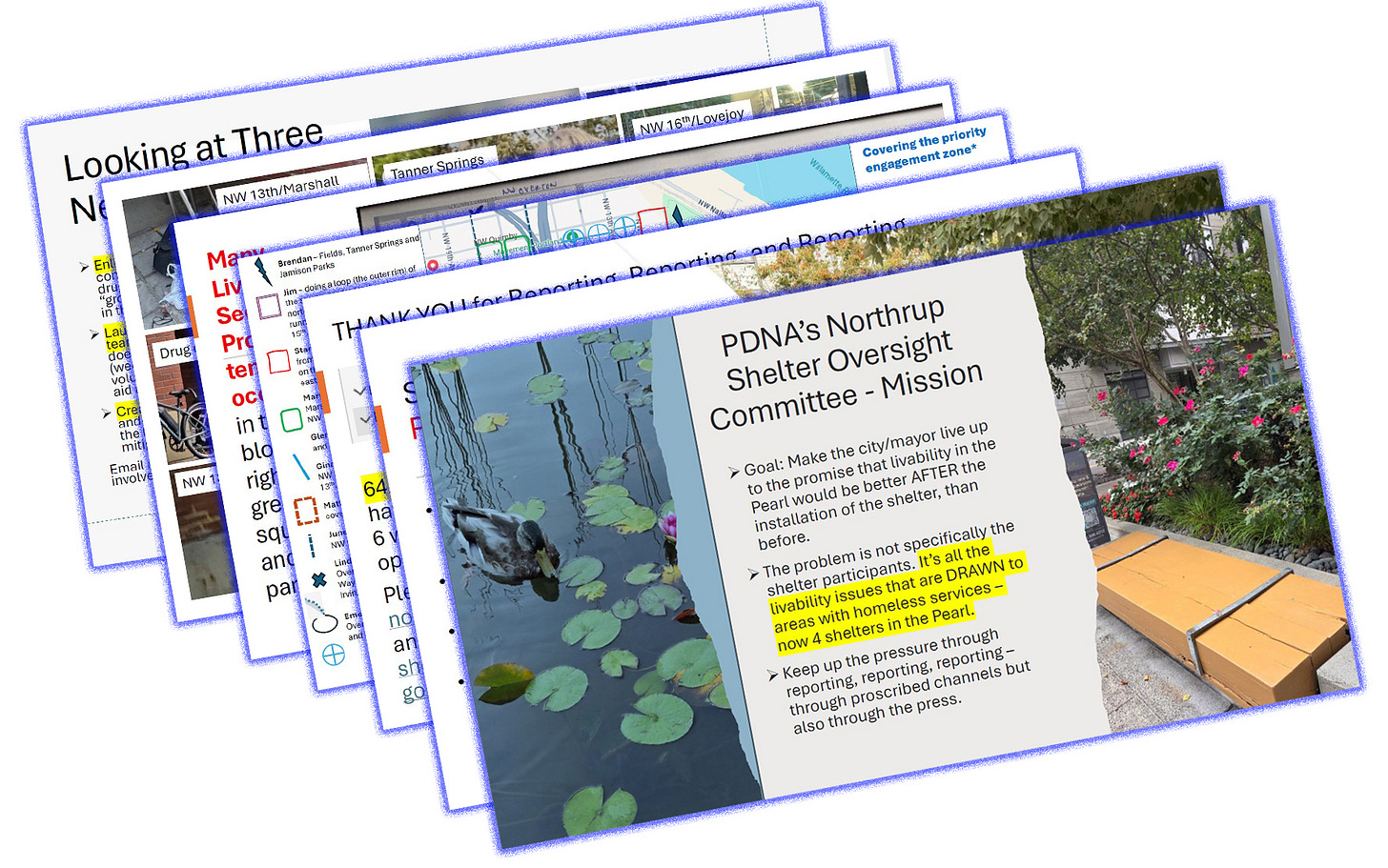The best advice is often free
Northwest Examiner editorial

“Report! Report! Report!”
Anyone who has heard a presentation from local cops or public safety officials has heard that advice repeatedly.
“But why report when you don’t get any response?” is a common retort.
What follows is a predictable explanation of how the system is designed around calls for service. Even if your call is not answered, it provides data that guides future allocation of resources. The squeaky wheel gets the grease, as they say.
There is truth in all of that, but it describes a most primitive and inadequate citizen engagement process, and one wasting enormous potential to improve our city and the lives of its inhabitants.
The Pearl District Neighborhood Association has produced a sterling model of a better way. Facing the siting of an overnight homeless shelter in the district that they deemed inevitable, neighborhood activists are making the best of the situation. In that Mayor Keith Wilson promised that the Northrup Street Shelter would improve conditions in the surrounding area, they aimed to hold him to that standard.
They created the Shelter Oversight Committee and enlisted 10 people to daily monitor what was happening in each of 10 subdistricts. All neighbors were asked to help by reporting their experiences through official channels and copying the Oversight Committee, which would then know what the city knew about incidents and patterns.
Two illustrated reports of their findings were issued in the first six weeks of the shelter’s opening. They pointed out positive outcomes as well as negative. There was also minute detail—with photos denoted for time and place—all packaged in readable brief reports with clear highlights and pertinent statistics.
“Fairly good litter patrol and sidewalk cleaning within two blocks of the shelter by Portland Environmental Management Office,” noted the first report.
“The problem is not specifically the shelter participants. It’s all the livability issues that are drawn to areas with homeless services—now four shelters in the Pearl,” stated the second.
“Launch a humanitarian outreach team to help cover hours that the Northwest Community Conservancy does not have outreach available. The volunteers would provide deterrence and aid at the same time,” was recommended.
This is constructive criticism, with sufficient detail to guide program managers and administrators.
While reading for all, a creative administrator could do so much more with such reports. What about inviting the committee in for a briefing and an exchange of ideas with people running the program? The official in charge could then excuse the neighbors before further discussion with staff and finalization of plans. The buck would still stop with the mayor or whoever he appointed to enact his plan. The role of citizens would remain advisory.
But the wealth of firsthand information rooted in knowledge of local norms and public expectations could vastly improve shelter operations and mitigation of neighborhood impacts. This is how a community feels heard and is willing to go along with programs it might otherwise oppose.
Without a show of respect from administrators, ground-level employees are unlikely to see the bigger picture. They may resent the implication that they’re not doing their jobs well enough. Employees who must receive complaints from neighbors and too often make promises of follow-up that doesn’t happen through no fault of their own tend to become defensive and demoralized, often looking for a quick rejoinder to discourage further calls.
For instance, a neighbor of a North Portland shelter was brushed off with “it’s not illegal to sleep on the sidewalk.”
The best programs, whether in the public or private sector, cherish public feedback and will invest in it, often hiring outside consultants and carefully assessing the findings. Pearl neighbors have put a jewel of data, insight and community connection in the city’s lap. The mayor’s office is should treat it as such.
Good advice from below can be ignored or compartmentalized, but that comes with a risk. Citizens this skilled and committed to their community’s welfare will inevitably express their will in other ways. The humble advisers spurned today are also—in the fullest sense of our nation’s founders—its owners whom the government must ultimately serve.



Grateful for the Pearl District Neighborhood Association, Linda Witt and volunteers for their informative work! Our Pearl and NW neighborhoods are lucky to have this crew reporting on the dire livability issues plaguing our neighborhoods due to the low barrier overnight shelters. See something, say something! We all need to keep reporting!
THANK YOU!!!
911 calls triple after overnight only shelter opens in North Portland; neighbors despair - oregonlive.com https://share.google/Yi0jznp7K4YGppjWK